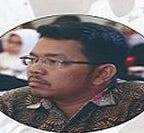Mohammad Hatta: The Political Role Model for Indonesian Leaders
Indonesia's first vice president, Mohammad Hatta, played a critical role in the country's struggle for independence. He fought tirelessly against colonialism and imperialism, and his leadership shaped Indonesia's democratic institutions.
Hatta was also a staunch advocate for state ethics, working tirelessly to ensure that the new nation was founded on sound principles of justice and equality. This article will explore Hatta's political career and enduring legacy as a role model for Indonesian leaders.
Bung Hatta was born on August 12, 1902, in Bukittinggi, West Sumatra. From an early age, he was deeply committed to the cause of Indonesian independence. During the colonial period, he was a leading member of the Indonesian Nationalist Education, working tirelessly to promote the idea of self-determination and to resist Dutch colonial rule.
Hatta's political work continued during the Japanese occupation of Indonesia. After the war, he played a vital role in the struggle for independence, serving as the vice president of the newly formed Republic of Indonesia.
Throughout his career, Hatta emphasized the importance of state ethics. He believed that leaders were responsible for acting with integrity and placing the nation's needs above their own interests. This commitment to ethical leadership helped shape the new country and remains an essential part of Hatta's legacy.
Biography Hatta's political career began in earnest when he moved to Mulo, Padang, to attend school. There, he became involved with the local nationalist movement and joined the Jong Sumatranend Bond. He later moved to the Netherlands to study economics, becoming a leading member of the Indonesian Student Association. After returning to Indonesia, Hatta became involved with the PNI-Baru, which trained a new Indonesian leader. The Dutch authorities later imprisoned him for his political activities, but he continued to work for independence even while in prison.
Hatta's political career continued after independence. He served as the country's first vice president from 1945 to 1956 and significantly shaped the country's political landscape. However, in the 1960s, Hatta became disillusioned with Sukarno's political approach and rejected his idea of guided democracy.
However, he grew increasingly disillusioned with Sukarno's authoritarianism and eventually resigned from his post in protest. Despite his disagreements with Sukarno, Hatta remained committed to democracy and equality. He continued to work for the betterment of Indonesia throughout his life, serving as a statesman and diplomat until he died in 1980.
Mohammad Hatta's legacy as a political leader is a testament to his commitment to democracy, justice, and equality. His tireless efforts to promote Indonesian independence and establish a robust and ethical government have left an indelible mark on the nation. Today, as Indonesia faces new challenges and opportunities, Hatta's example remains as relevant as ever. Indonesian leaders would do well to emulate his commitment to ethical leadership and place the nation's needs above their own personal interests. By doing so, they can help to ensure that Indonesia continues to thrive as a democratic and prosperous nation.
Mohammad Hatta's unwavering dedication to the cause of Indonesian independence and his commitment to ethical leadership have left an enduring legacy. As the nation faces new challenges and opportunities, we can look to Hatta as a role model for inspiring positive change. His belief in democracy, justice, and equality serves as a beacon of hope, reminding us of the importance of placing the nation's needs above personal interests. Let us honor Hatta's memory by continuing to work towards a better Indonesia that upholds the principles he holds dear.
